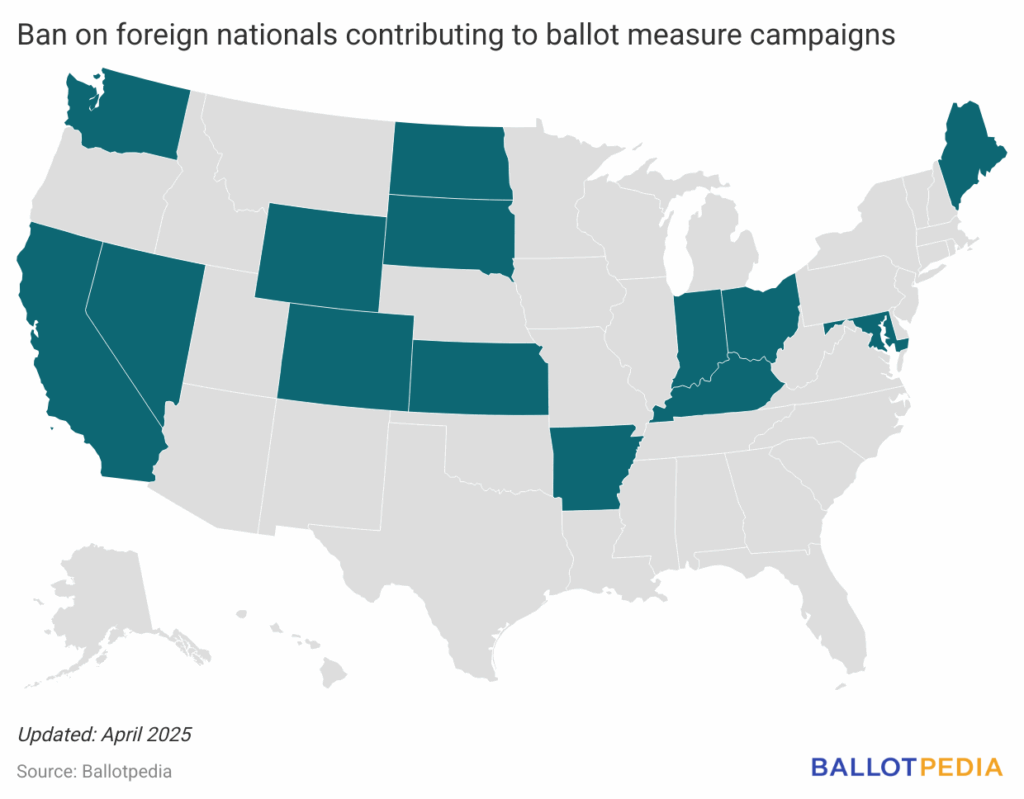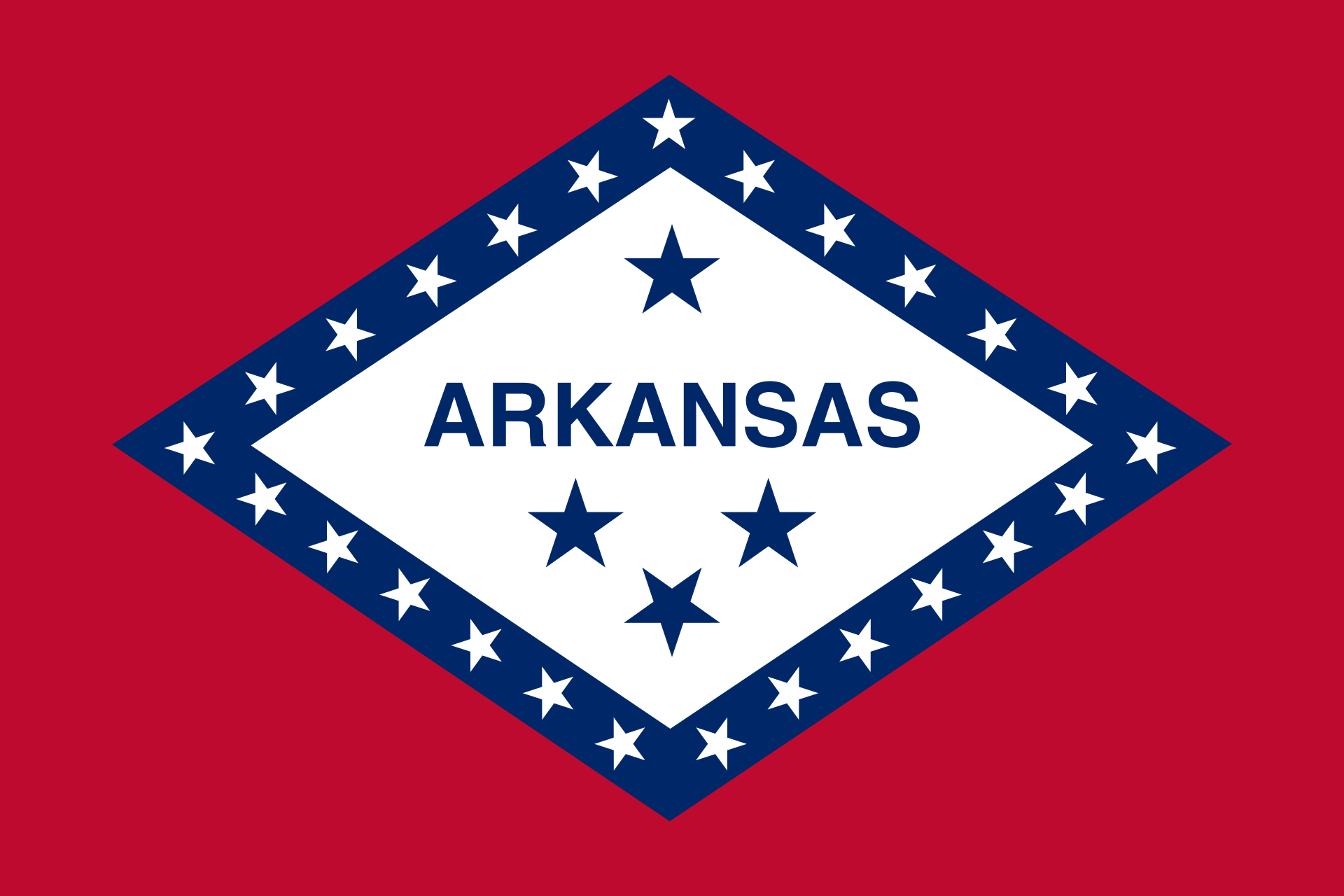Arkansas is the 14th state to pass a law prohibiting foreign spending in ballot measure campaigns and the fifth state to do so in 2025—a record for the most states enacting such laws in a single year. In previous years, no more than one state passed a similar law per year.
Arkansas House Bill 1837 (HB 1837) prohibits foreign nationals from donating directly or indirectly to ballot measure committees and requires these committees to affirm in campaign finance reports that they have not knowingly received contributions or expenditures from prohibited sources. The bill was introduced in the state legislature on March 18, 2025, and passed the House 87-5 and the Senate 34-0.
State Rep. Mindy McAlindon (R), who introduced HB 1837, said, "Under federal law, foreign nationals cannot give to candidates to influence elections, but there is a loophole that doesn't apply to ballot measures."
Thirteen other states—California, Colorado, Indiana, Kansas, Kentucky, Maine, Maryland, Nevada, North Dakota, Ohio, South Dakota, Washington, and Wyoming—have passed laws prohibiting foreign nationals or governments from contributing to ballot measure committees. California enacted the first such ban in 1997. Most of these bans were passed within the past five years, with Arkansas, Indiana, Kansas, Kentucky, and Wyoming enacting their bans in 2025.

Campaign finance rules for ballot measures differ from those for candidate elections. In 1978, the U.S. Supreme Court ruled that spending on ballot measure campaigns is similar to issue advocacy, such as lobbying, in the lawmaking process. In 2012, the Supreme Court affirmed that, under the Federal Election Campaign Act (FECA), foreign nationals were prohibited from making contributions to candidates. However, FECA "does not bar foreign nationals from issue advocacy,” which includes ballot measure campaigns. The Federal Election Commission, following the court's orders, has held that ballot measure campaigns are not regulated under FECA. According to the FEC, since ballot measure campaigns are similar to issue advocacy, foreign individuals, corporations, and governments can contribute to them.
Arkansas Secretary of State Cole Jester (R), who supports HB 1837, cited Hansjörg Wyss, a Swiss citizen living in Wyoming, as an example of a foreign national contributing to state ballot measure campaigns through an organization. Wyss has donated to the Sixteen Thirty Fund, which contributed at least $22.2 million to 10 campaigns supporting or opposing ballot measures related to abortion, minimum wage and sick leave, ranked-choice voting (RCV), and redistricting in 2024.
The 14 states that have passed laws banning foreign spending on ballot measure campaigns vary in how they define and restrict foreign entities. Some states use the federal definition of foreign principal or foreign national, or similar definitions, where spending by foreign individuals, organizations, or governments is prohibited. In Maine and South Dakota, foreign spending is only prohibited by foreign governments, not by foreign individuals. Arkansas HB 1837 defines a foreign national as any of the following: a person who is not a U.S. citizen or lawful permanent resident; a foreign government; a foreign political party; or an entity organized under the laws of, or with a principal place of business in, a foreign country.
Four of the 14 states that enacted laws banning foreign spending on ballot measure campaigns did so through voter-approved ballot measures: Colorado, Maine, Missouri, and North Dakota.



